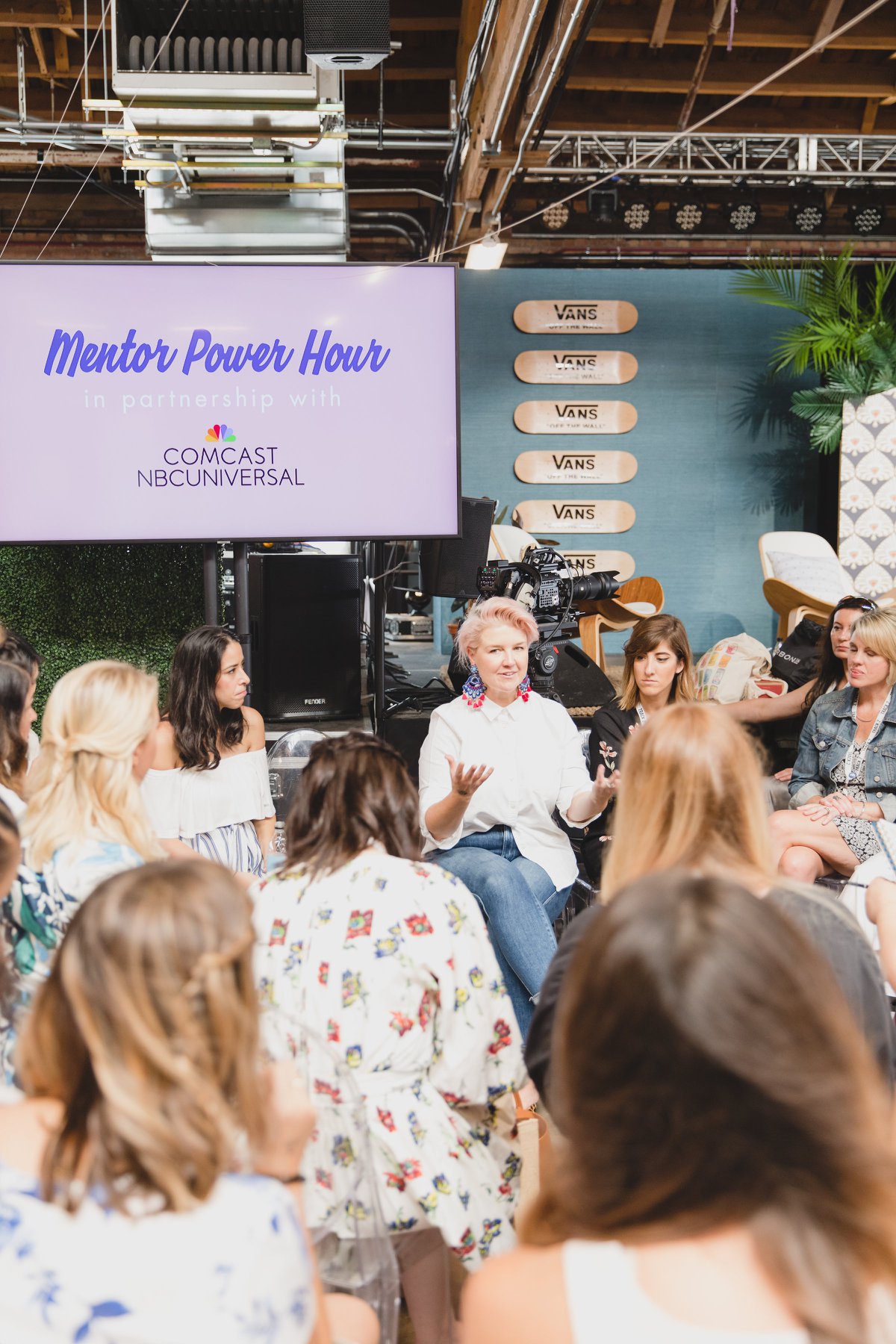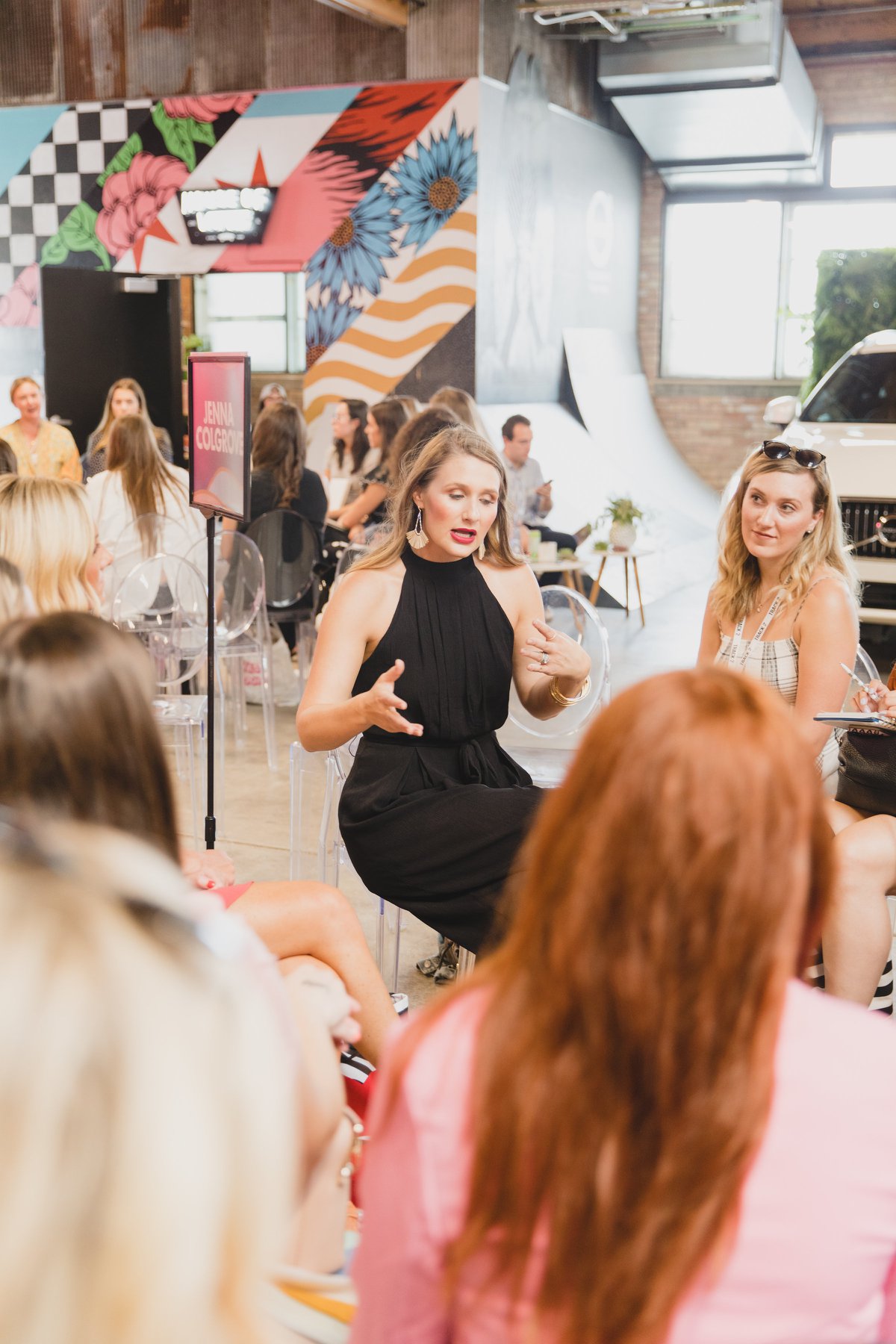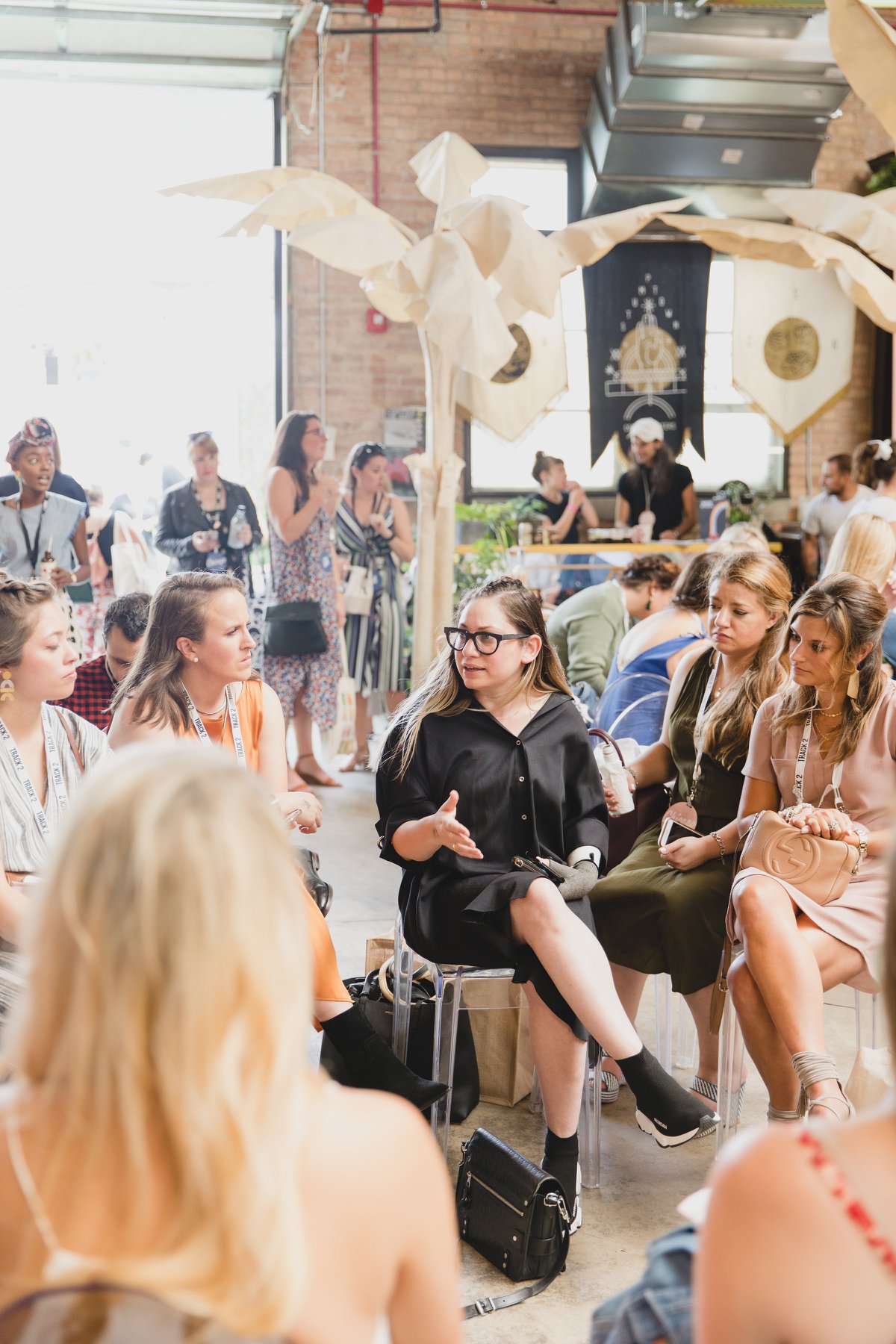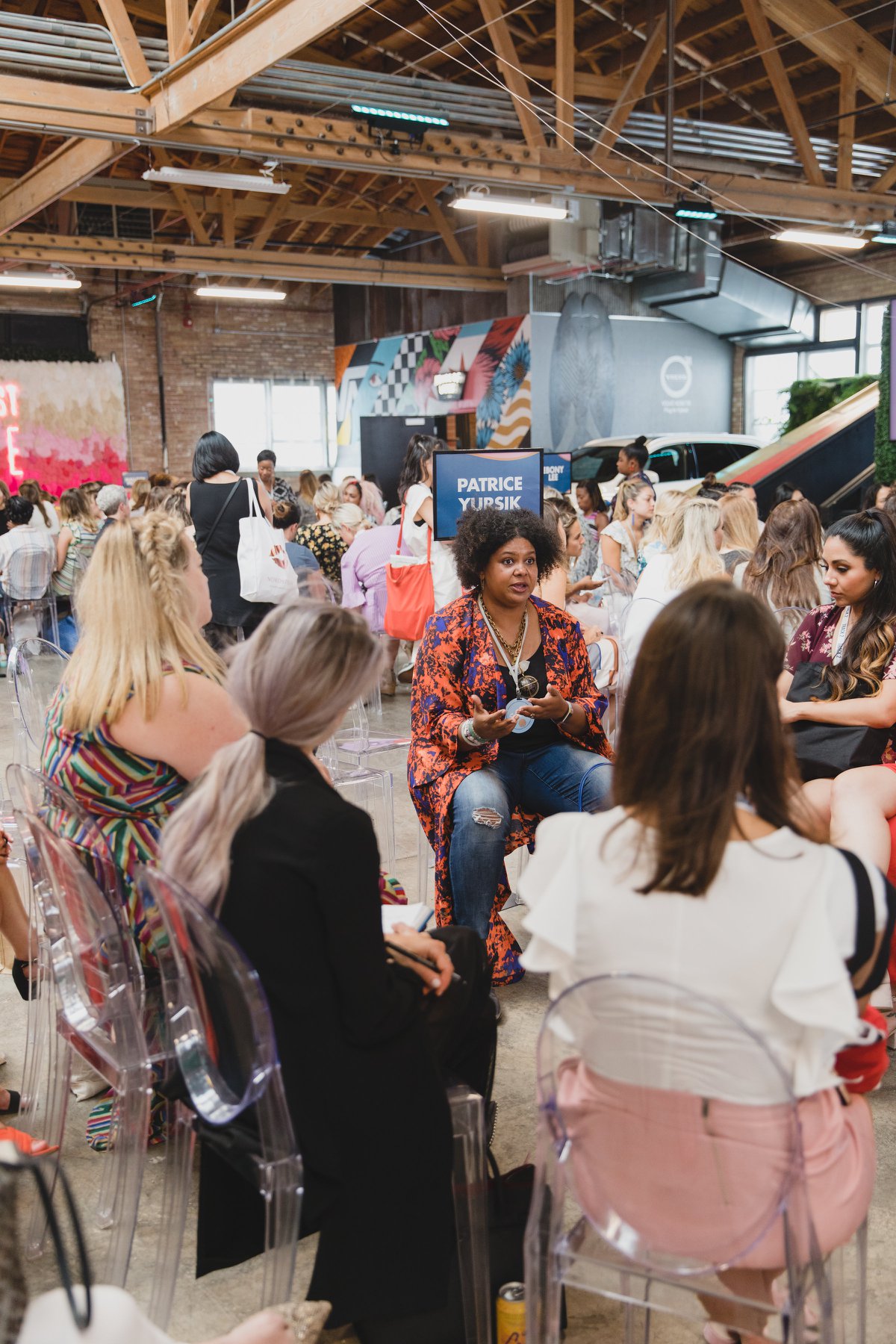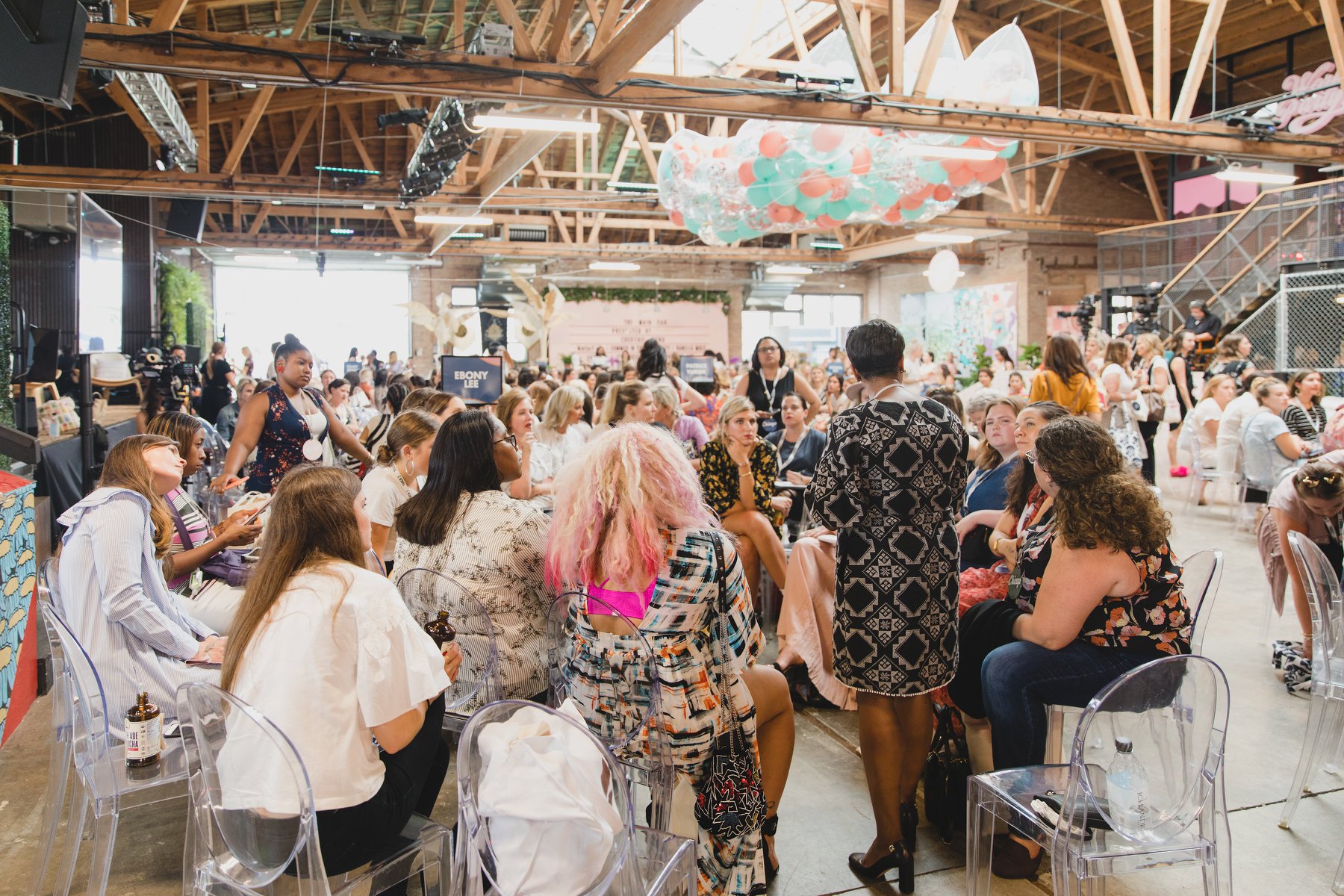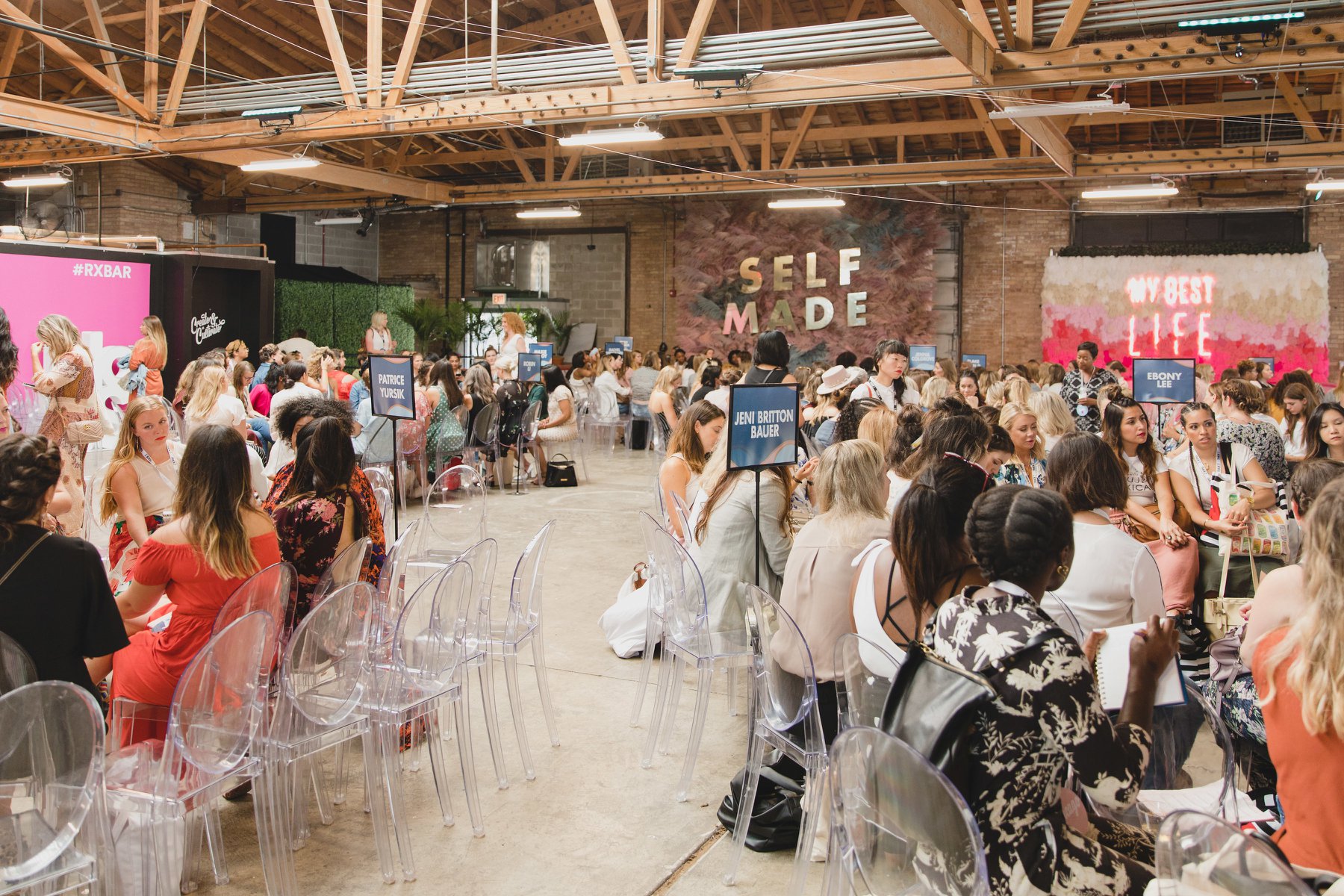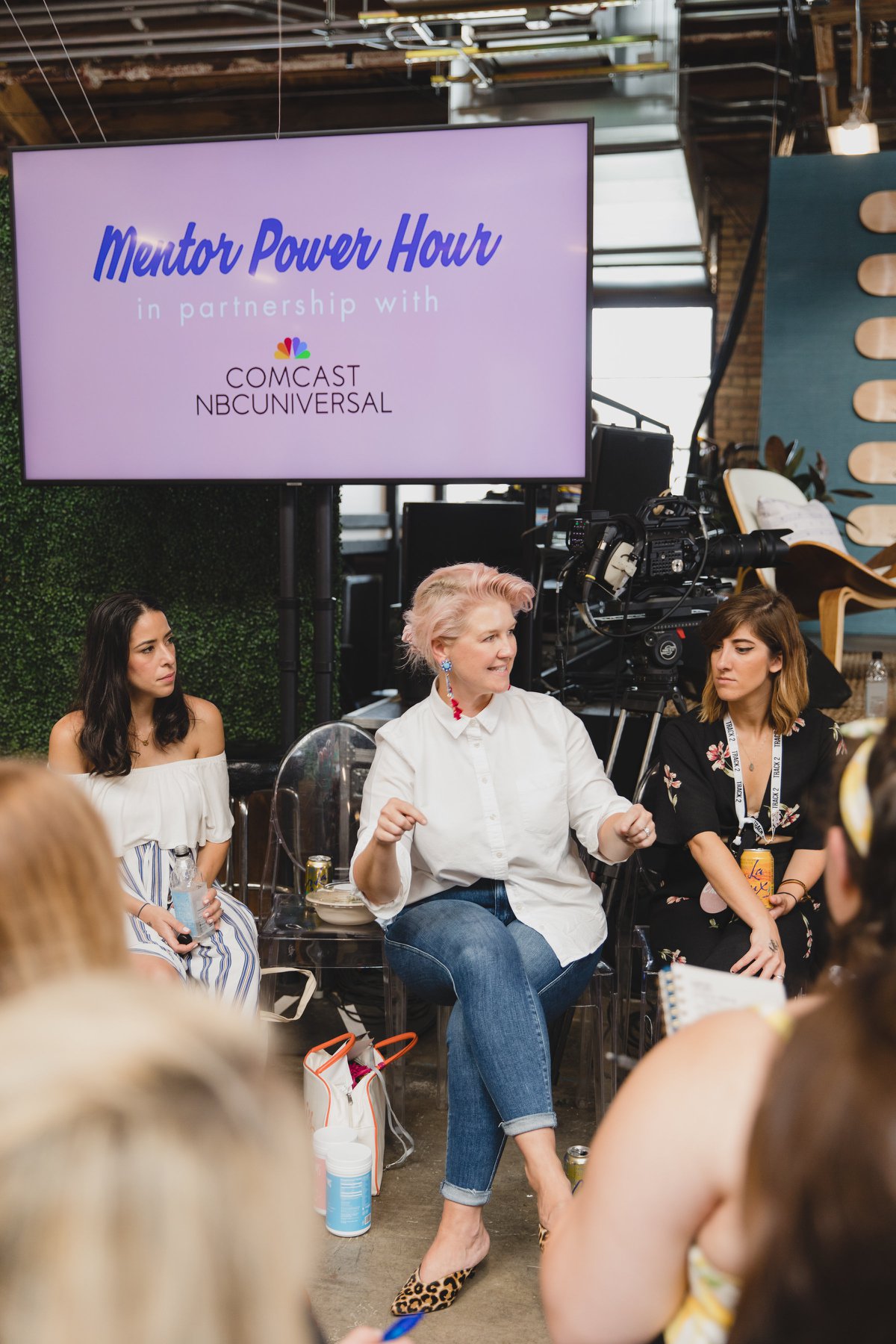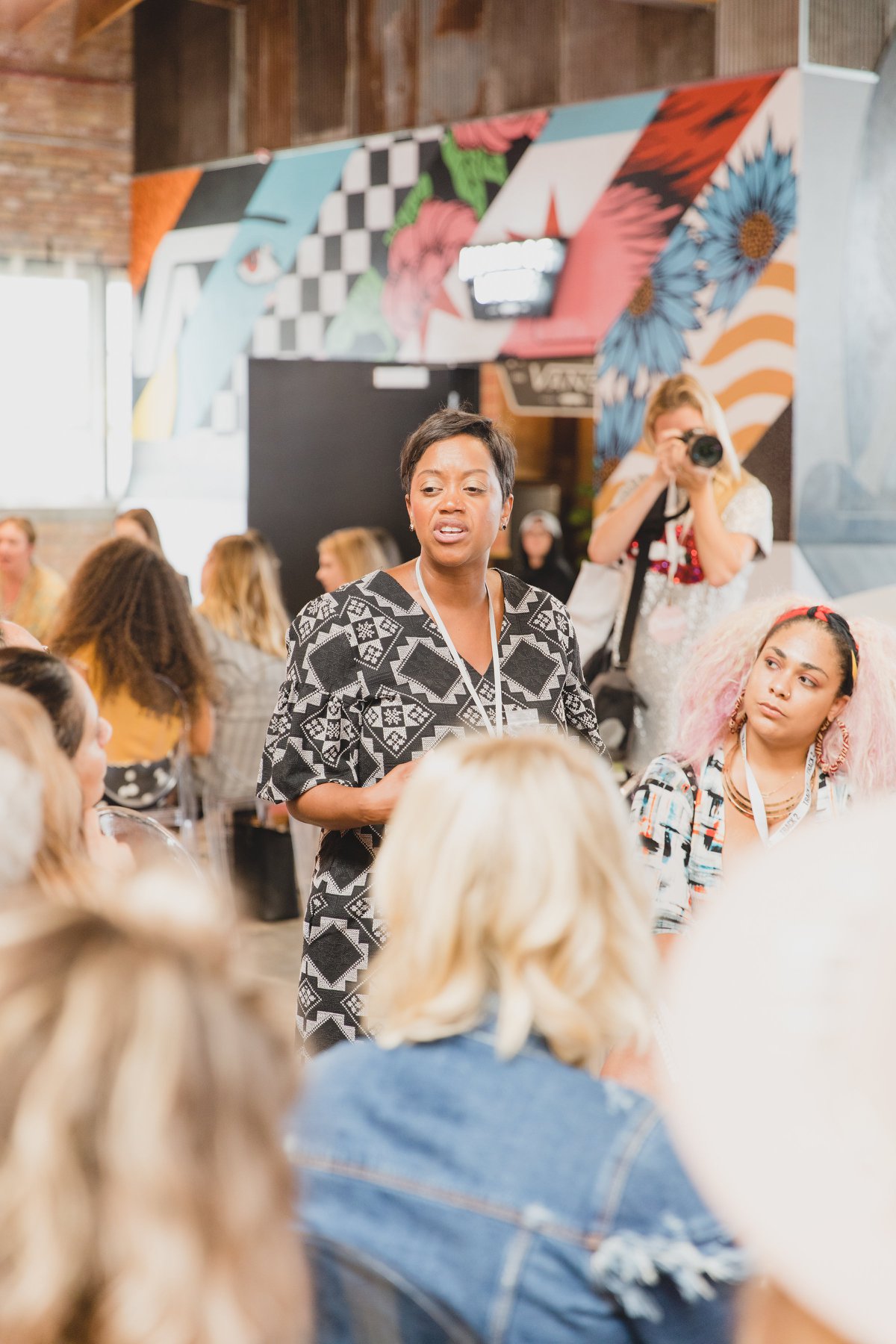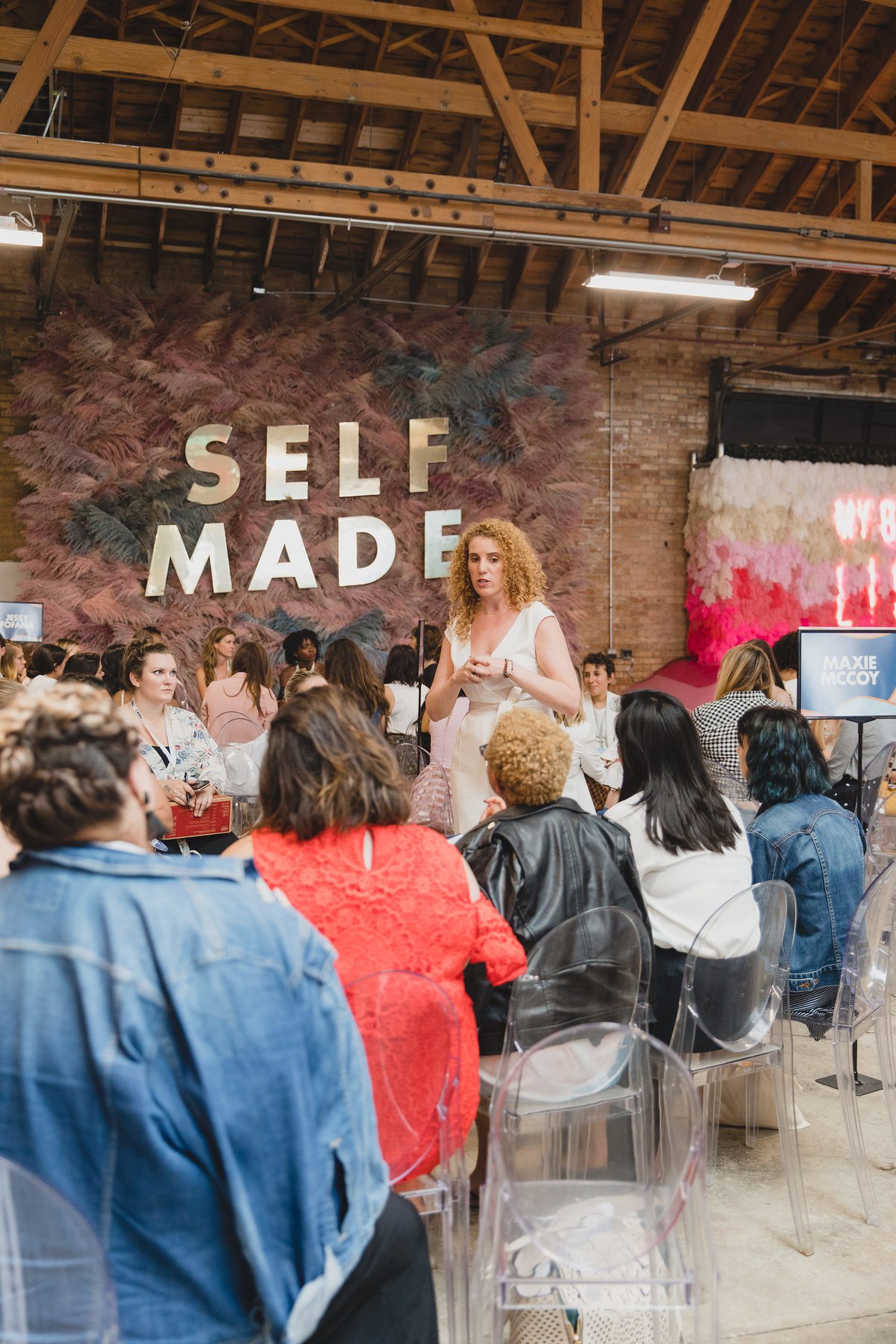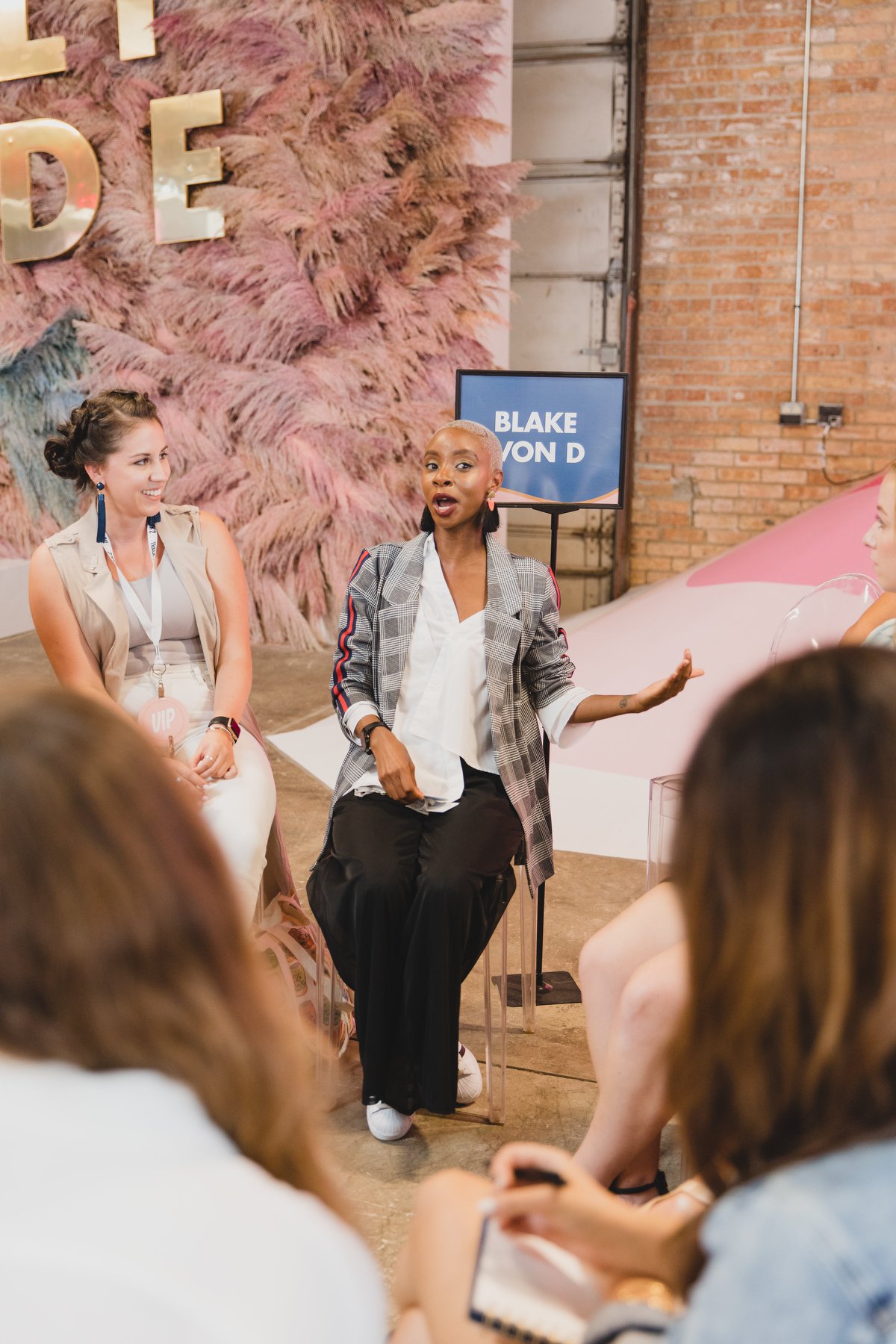3 Lessons we Learned from Our Create & Cultivate Chicago Mentors
Start your next meeting with “Is this your best work?”Do you ever just wish someone gave you the playbook for the next five years of your life? Like, imagine if someone really took the time to write out the list of things you need to do step-by-step in order to accomplish your dreams?
Welcome to mentorship.
Disclaimer: It doesn’t actually come with a step-by-step playbook.
What it does come with, are real life lessons, candid advice, and a mutually beneficial relationship.
Everyone tells us mentorship is one of the major keys to success. Cool, but when, where and how do we even start finding a mentor? We all have those same questions. So we tapped some of our mentors from the #CreateCultivateCHI Comcast Mentor Power Hour to break down all the keys to mentorship.
Jeni Britton Bauer is the founder of Jeni’s Ice Cream. After leaving school to start her business, Jeni overcame a ton of challenges, and her business has now expanded to 33 stores across the U.S.
Ebony Lee is the Senior Vice President of Strategic Development at Comcast NBCUniversal. Innovation is central to her role, and she works in emerging areas of growth for the company, including supporting startups in media and technology.
Riyhana Bey is the Director of Brand Execution and Marketing at Volvo. She oversees digital and social strategy and helps execute integrated marketing campaigns.
Maxie McCoy is a career coach, motivational speaker and the author of You’re Not Lost, a tough-loving guide to figuring out your next steps and believing in yourself enough to take them.
We love knowing that Comcast NBCUniversal believes that mentoring matters! Keep reading to get their advice on mentorship below.
On modeling behaviors
One reason mentorship is essential for young professionals is because success leaves clues. Meaning, as people rise to the top of their respective career chains, they leave behind habits and example behaviors that we can model. What are some behaviors or habits that you shaped from mentors along the way?
Jeni Britton Bauer: Never cry “why me!?” Accept unexpected challenges and begin to be a part of the solution immediately.
Every single moment or event is a chance to grow, learn, explore, discover, have fun. Always be aware of and curious about what’s going on around you and of the people in the room and your life will be a great adventure.
Champions are champions because they get good at being beat up, knocked down, and never losing focus. That’s why LeBron is so good at basketball. That’s why I’m good at ice cream. Make your number one trait about resilience. Show the world that you are a champion at never losing sight of your vision of who you want to be and that nothing will stop you. Let that pride fuel you.
Never underestimate the smallest, meekest among us. They are often the most powerful.
These I learned from a Wayne Dyer self-help book in 1993, my grandmother (Enid Scripture), LeBron James, and Frodo Baggins.
Ebony Lee: The smartest people in a room are usually not the ones with all of the answers, but the ones asking the most thought-provoking questions. I’ve seen the greatest leaders use this trick and I completely believe that it has helped shape my success. I keep this in mind all the time, and definitely cut my teeth on this approach early in my career when I was a consultant, and still do to this day. When you’re able to get people thinking and talking, it’s a powerful tool in guiding people to the right answer or approach. Plus, you’ve now given them an ownership stake in a project’s success.
Maxie McCoy: I’ve been on the receiving end of incredible mentorship. One of the biggest lessons I’ve learned from these mentors is to know where you shine and then optimize for that. There’s never a single path to success. Rather, it’s important to take the best practices you see your mentors or inspirations doing, and then layer your own unique way on top of it.
Riyhana Bey: One of my favorite bosses would start meetings by asking one simple question: “Is this your best work?” If anyone hesitated or said no, he would immediately stop the meeting and ask what it would take to get to your best. He believed in hiring a team that was smarter than he was, and he saw his only role as being a facilitator of allowing others to do their best work. I fully believe in surrounding yourself with people smarter than yourself, listening to them, inspiring them, and getting out of the way of their greatness.
On finding their first mentors
Jenni: When I was 13 I decided that I had no one in my life who could help me become who I wanted to become—my family had broken apart, and it was not a good situation. I was worried about my future. So I wrote in my journal that I was going to find people outside of my immediate family I could model myself on. And that’s what I’ve done since.
I never had real mentors. I studied others I admired from afar and picked up their traits. From Katherine Hepburn to Luke Skywalker, and Aragorn to LeBron James.
Ebony: I found many of my mentors by volunteering for projects that were outside of my scope of work. In taking this calculated risk I expanded my skill set, and I was also able to gain exposure to leaders that I wouldn’t have met or had access to in my day-to-day. It’s happened more than once that these leaders saw my potential and became my mentors, and these are people who’ve guided me through many of my career choices, including my decision to join Comcast.
Maxie: My first mentor came from a cold email that I sent to the then highest ranked woman at ESPN, Rosa Gatti, to see if she’d talk with me about my goals to be a sports broadcaster. I was obsessed with the idea of interning at ESPN while in college, so I joined the Association of Women in Sports Media and highlighted every woman that worked at ESPN. Rosa answered that email. She got on the phone with me. She said I impressed her. And then she proceeded to open a door that put my life on a rocket ship forward, but I still had to run through the doors that she was opening. Normally, I wouldn’t tell people to go cold calling for mentorship, but in this case, it worked for me in a big way. So, don’t expect it, but it is a good reminder that the worst someone could say is “No”...and the best I could possibly be better than you can even believe!
Riyhana: All of my mentors were found the same way. I sat in a room, listened to them speak and was in awe. After that, I sought them all out and volunteered ideas on how could be helpful to them and asked for a value exchange whereby they let me ask as many questions as I wanted. I’m lucky they obliged, and I’ve learned more from lunches with them than entire years of my career.
On mentors and mentees benefiting each other
It’s crucial for us to think of a mentor relationship just the same as any other relationship in our lives. Adding value to your mentor's projects and business goals is just as important as receiving value from them. We asked our Comcast mentors their best advice for creating a mutually beneficial relationship with a mentor.
Jeni: Show up with your homework done. I had one guy I stalked in the food science department at Ohio State University who only said “yes” or “no” to my theories. I would read a science textbook on milk, work at the dairy, make a few discoveries and say to him, “So, if I heat milk like this, the proteins will act like that?” And, “Can I use that to build body instead of stabilizing or emulsifiers?” He would just say, “You are on the right track,” or “Nope.” Nothing is free. You gotta do your work. I learned more from him than almost anyone.
Also, if you aren’t working on or thinking about your thing all hours of your free time, then you aren’t passionate enough. I still do that. Self-care for me is working. It’s what I enjoy most. Don’t ever look for shortcuts from mentors. You are strong and capable, and you need to show that. Unless you’re a rare genius and your idea is so great that it builds itself. And while we’re here, I’ll add that all the money in the world isn’t worth what it will take from you. You’ve got to have a better, more inspiring motivation — like “I want to live a life of adventure and excitement.” Use a mentor to help you focus on the important stuff and then let everything else go.
Never waste time, especially mine.
Ebony: Like any relationship, you need to be truly committed to getting the most out of it. There are a lot of inspiring people you will meet, and while it is tempting to try and cast a wide mentorship net, this doesn’t always work out in your best interest. Really take the time to invest in your relationship with a mentor – and make sure that you’re getting what you need as a mentee. This might mean taking it slow and studying someone before approaching them, and I think you also should ask yourself the tough question about whether there is actually a connection between you and the potential mentor.
Remember you get what you give, and that’s true for a mentor and a mentee.
Maxie: Know exactly where they can provide value. Most great mentor relationships don’t come from “picking their brain” on everything under the sun. Nobody has time for that. Rather, know where their specific expertise can provide insight into your own career and focus your time on that.
Circle back. If a mentor gives you advice and you take it, let them know! If they open a door for you or a connection, let them know how it turned out! These are the highlights of mentor relationships so make sure they know. Show your gratitude. Whether that’s supporting their work, giving them your feedback, or sending a handwritten card, make sure you’re giving as much as your taking. Often, a heartfelt thank you can go a really long way.
Riyhana: I have only one key – you must genuinely admire and respect each other. Mentoring can be as wonderful as being mentored, and both parties have to be engaged and see something special in one another that allows you to make the time and commit to the process over time.
Mentors can be found in various ways and sometimes, they don’t even need to know they are a mentor of yours. Just watch and take notes. Remember ladies; success leaves clues. Study those who inspire you and ask the right questions. Take the advice from our Comcast #CreateCultivateCHI mentors and apply it to your mentor relationships.
What’s your experience with mentorship been? Leave us a comment below to join the convo!
MORE FROM OUR BLOG



